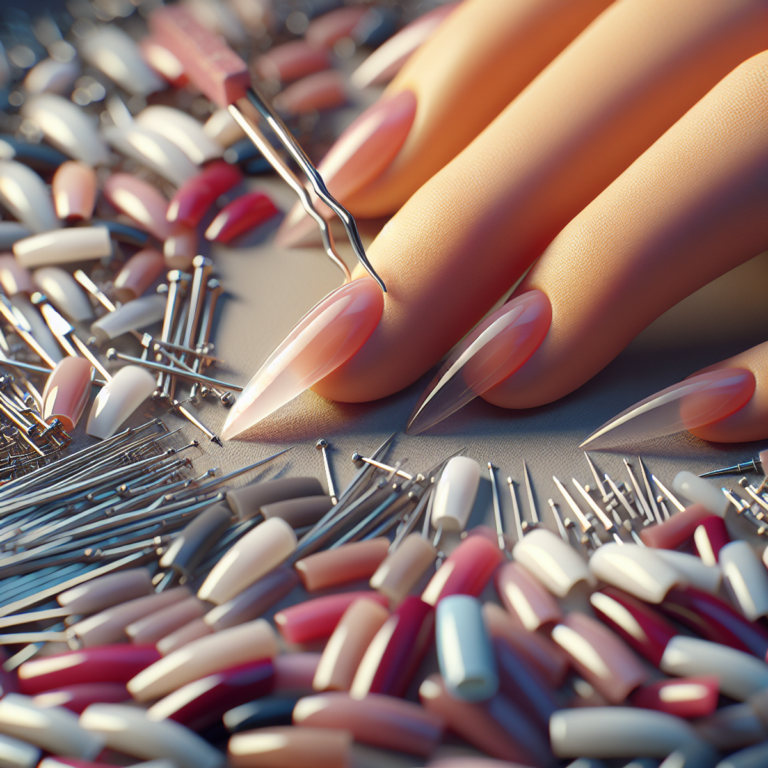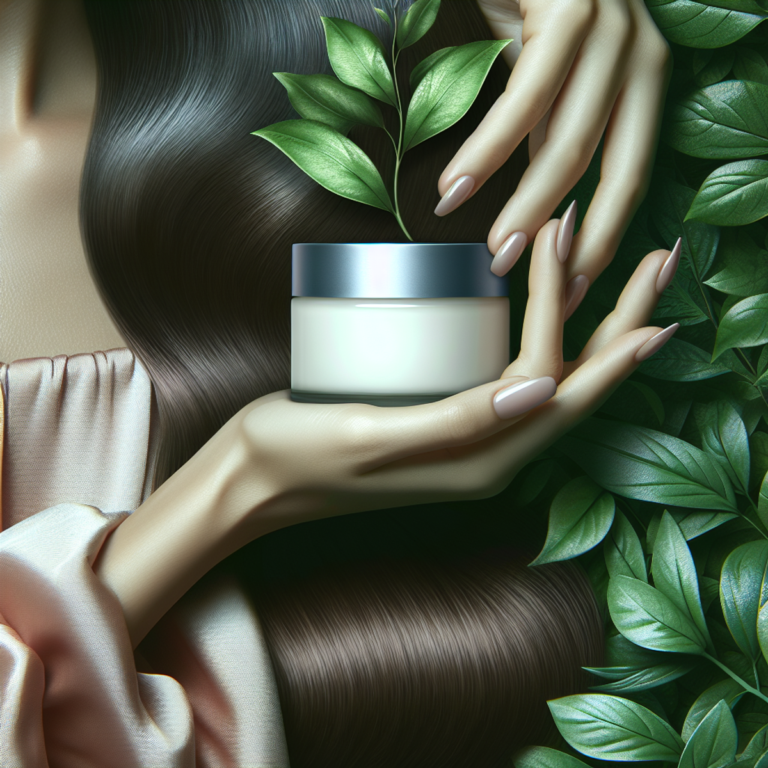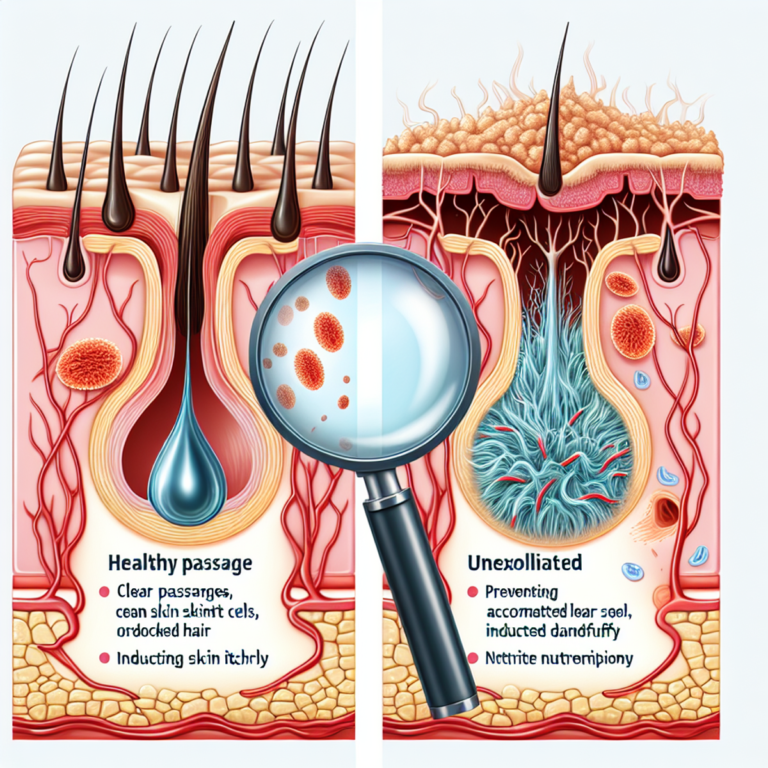8 Natural Remedies for Acne, According to Experts

Introduction
Acne is a skin condition that affects millions worldwide, characterized by pimples, blackheads, and cysts. It affects people of all ages, causing both physical discomfort and emotional distress. Finding effective acne treatment is a priority for many, and while there are countless options available, the appeal of natural remedies for acne remains strong.
The importance of natural remedies lies in their potential to offer gentle and holistic solutions without the harsh side effects associated with some chemical treatments. Harnessing the power of nature can be a sustainable way to address skin concerns and improve overall skin health.
Here are 8 natural remedies for acne, recommended by experts, that can be part of your skincare routine:
- Tea Tree Oil – Known for its antibacterial properties.
- Apple Cider Vinegar – Contains citric acid to combat bacteria.
- Argan Oil – Balances sebum production.
- Jojoba Oil – Moisturizes without clogging pores.
- Aloe Vera Gel – Soothes and reduces redness.
- Honey – Heals lesions and prevents breakouts.
- Zinc – Reduces inflammation.
- Green Tea Extract – Decreases sebum production.
These expert-recommended remedies can help you understand how to get rid of pimples effectively using nature’s bounty. Whether you’re curious about how to remove pimples or seeking advice on how to remove pimples overnight, these options provide a foundation for healthier skin management.
Understanding Acne
Acne is a common skin condition where hair follicles get blocked, leading to pimples, blackheads, and cysts. It’s often frustrating because it affects both skin health and appearance. To effectively manage acne, it’s important to understand its underlying causes.
Common Causes of Acne
Several factors contribute to the development of acne:
- Hormonal Changes: Fluctuations in hormone levels, particularly during puberty, pregnancy, or menstruation, can increase oil production in the skin. This excess oil can clog pores and lead to breakouts.
- Bacteria: The presence of bacteria such as Propionibacterium acnes on the skin can worsen inflammation and contribute to acne formation.
- Diet and Lifestyle: Certain dietary choices and lifestyle habits may play a role in acne severity. Foods high in refined sugars and dairy products have been linked to increased breakouts for some individuals.
Different Types of Acne
Acne shows up in different ways, each needing specific treatments:
- Whiteheads and Blackheads: These are called comedonal acne and happen when pores get blocked with oil and dead skin cells. Whiteheads have closed tops, while blackheads are open and turn dark when exposed to air.
- Papules and Pustules: These are swollen spots that look like small red bumps (papules) or have pus inside (pustules).
- Cystic Acne: This severe type causes large, painful cysts under the skin’s surface. If not treated properly, cystic acne often leads to scarring.
For those dealing with persistent or severe types like cystic acne, understanding how to quickly get rid of pimples or how to naturally and permanently remove pimples becomes a priority. Additionally, addressing issues like how to eliminate back pimples or how to fade pimple marks can further enhance skin health.
Recognizing these aspects provides a foundation for exploring natural remedies that target specific acne concerns effectively.
Benefits of Natural Remedies for Acne
Exploring natural skincare options offers a holistic approach to managing acne. Many individuals seek ways to get rid of pimples fast, reduce bumps on the forehead, and remove dark spots caused by acne. Embracing natural remedies can provide these benefits with fewer side effects compared to synthetic products. These approaches focus not only on treating visible symptoms but also on addressing underlying causes like inflammation and bacterial growth.
1. Tea Tree Oil
Renowned for its antibacterial and anti-inflammatory properties, tea tree oil is a top choice among natural remedies for acne according to experts. Its ability to target Propionibacterium acnes, the bacteria responsible for acne, makes it effective in reducing breakouts and preventing new ones from forming.
How Tea Tree Oil Works Against Acne-Causing Bacteria
Tea tree oil contains terpinen-4-ol, a compound that kills bacteria and fungi. This makes it particularly effective in combating the bacteria that contribute to acne formation. When applied to the skin, this essential oil penetrates pores, killing bacteria and reducing inflammation—key steps in shrinking cystic pimples overnight or getting rid of zits fast.
Recommended Application Methods
To use tea tree oil effectively:
- Dilution: Always dilute tea tree oil before application to prevent skin irritation. A common dilution ratio is 5% tea tree oil with 95% carrier oil (e.g., coconut or jojoba oil).
- Spot Treatment: Apply the diluted mixture directly onto blemishes using a cotton swab. This targeted approach helps shrink pimples without affecting surrounding skin.
- Overnight Treatment: For persistent acne, apply it as an overnight treatment on affected areas—this can help significantly reduce inflammation by morning.
Precautions to Consider
While tea tree oil offers numerous benefits for acne treatment, caution is necessary:
- Conduct a patch test before using it extensively; some individuals may experience allergic reactions.
- Avoid applying undiluted tea tree oil directly onto the skin as it can cause irritation or dryness.
- Keep away from sensitive areas such as eyes and mucous membranes.
Incorporating tea tree oil into your skincare routine can be a game-changer in your quest on how to stop pimples or how to get rid of pimple scars naturally. By understanding its benefits and precautions, you can effectively integrate this powerful remedy into your regimen for clearer skin.
The journey towards achieving smoother skin through natural methods doesn’t stop here; each remedy brings its unique advantages in tackling specific acne concerns—whether you’re trying to get rid of spots quickly or seeking ways to remove pimple scars naturally, there’s much more insight gleaned from expert-recommended solutions ahead.
2. Apple Cider Vinegar
Apple cider vinegar is a popular natural skincare ingredient praised for its ability to combat acne. Citric acid, found in apple cider vinegar, plays a crucial role in killing acne-causing bacteria. This acid not only targets bacteria but also helps maintain the skin’s pH balance, contributing to healthier skin overall.
How to Use Apple Cider Vinegar for Acne
To harness the benefits of apple cider vinegar for acne treatment, proper application is essential. Undiluted vinegar can be harsh on the skin and may cause irritation. Here’s how you can use it effectively:
- Dilute: Mix one part apple cider vinegar with three parts water.
- Apply: Use a cotton ball or pad to apply the solution on areas prone to breakouts like the forehead or chin.
- Patch Test: Before using it regularly, test the diluted mixture on a small area of your skin and wait 24 hours to check for any adverse reactions.
Why Choose Apple Cider Vinegar?
While apple cider vinegar offers promising results in treating pimples quickly and reducing cystic pimples overnight, it’s crucial to monitor your skin’s response closely. Here are some reasons why this remedy might be beneficial:
- It provides an option that combines efficacy with reduced side effects compared to synthetic alternatives.
- It addresses concerns about removing pimple scars naturally or treating pimples without harsh chemicals.
- It embraces the advantages of using natural remedies over pharmaceutical options.
Remember, understanding how your skin reacts and being gentle with your approach are key factors when deciding how to stop pimples effectively.
3. Argan Oil
Argan oil is a popular choice in natural skincare and can be very beneficial for those dealing with acne. It has a special ability to balance sebum production, which is especially helpful for people with oily skin who are prone to breakouts. Excessive sebum can clog pores and lead to pimples and other blemishes. Argan oil helps regulate this natural oil production, potentially reducing the occurrence of acne.
To get the most out of argan oil for acne-prone skin, try these application tips:
- Direct Application: Apply a few drops of pure argan oil directly onto clean skin. Gently massage it into your face, focusing on areas that tend to get oily and have breakouts like the forehead or chin.
- Mix with Moisturizer: For extra hydration, mix a couple of drops into your daily moisturizer. This combination can help keep your skin moisturized without making it more oily.
- Night Treatment: Use argan oil as an overnight treatment. This allows your skin to absorb its nourishing properties while you sleep, helping to refresh and balance your complexion.
If you’re looking for natural ways to get rid of pimples quickly or prevent them from appearing on your face at home, argan oil might be worth considering. However, it’s important to remember that while argan oil is generally well-tolerated, it’s always a good idea to do a patch test if you have sensitive skin or allergies.
Adding argan oil to your skincare routine fits in with the trend of using natural remedies instead of pharmaceutical options because they tend to have fewer side effects and cause less irritation. It not only addresses immediate concerns but also supports long-term skin health, making it a valuable addition in the quest to remove pimple scars naturally and achieve clearer skin.
4. Jojoba Oil
Jojoba oil is a standout among natural skincare solutions, particularly for those seeking how to get rid of pimples fast and how to remove dark spots caused by pimples. Its unique composition closely resembles the natural oils produced by human skin, making it an ideal choice for maintaining balance without clogging pores.
Similarity to Natural Skin Oils:
- Jojoba oil mimics the skin’s sebum, allowing it to penetrate deeply and moisturize effectively. This similarity helps regulate oil production, which can be particularly beneficial for those with oily skin.
- Its non-comedogenic nature ensures that it nourishes the skin without contributing to blocked pores or blackheads, offering an effective way to manage issues like how to treat blackheads or how to stop pimples.
Best Practices for Use:
- Cleansing: One common application method involves using jojoba oil as a cleanser. Apply a few drops onto dry skin and massage gently to dissolve makeup and impurities. Rinse with warm water or wipe away with a soft cloth.
- Moisturizing: For those wondering how to get rid of bumps on forehead or how to shrink a cystic pimple overnight, jojoba oil can be used as a daily moisturizer. Apply a small amount after cleansing your face, focusing on areas prone to dryness or acne.
- Spot Treatment: Dab a small amount onto specific problem areas like pustules or deep pimples. This method can help soothe inflammation and reduce the appearance of blemishes.
By incorporating jojoba oil into your routine, you embrace a holistic approach that not only tackles current skin concerns but also supports long-term skin health. It’s part of the broader spectrum of natural remedies that offer reduced side effects compared to pharmaceutical options, making it an invaluable addition for those looking into the benefits of natural remedies in acne treatment.
5. Aloe Vera Gel
Aloe vera gel is a fantastic natural remedy for acne, known for its antibacterial and anti-inflammatory properties. These qualities make it a powerful ally in the battle against skin blemishes, helping to calm inflamed skin and reduce redness effectively.
Antibacterial and Anti-inflammatory Effects
- Aloe vera contains compounds that combat bacteria, reducing the presence of acne-causing microbes. This property makes it effective for those looking to understand how to get rid of pimples fast or how to stop pimples.
- Its anti-inflammatory effects help soothe irritated skin, making it ideal for calming conditions like tiny bumps on the face or redness associated with acne.
Application Methods
To maximize the benefits of aloe vera gel:
- Spot Treatment: Apply aloe vera gel directly onto problem areas such as pimples on the forehead, using a cotton swab for precise application.
- Facial Mask: Combine aloe vera with other soothing ingredients like honey for a natural mask that addresses how to treat tiny bumps on the face and reduces redness.
- Overnight Application: For those wondering how to get rid of pimples on the forehead overnight, leave a thin layer of aloe vera gel on the affected area before bed.
When considering how to remove pimple scars naturally, aloe vera’s healing properties also aid in diminishing dark spots over time, promoting long-term skin health without the harsh side effects associated with pharmaceutical options. Embracing aloe vera gel as part of your skincare routine not only tackles immediate concerns but nurtures healthier skin in the long run.
6. Honey
Honey isn’t just a sweet treat; it’s a powerhouse in natural skincare, especially when it comes to treating acne and preventing breakouts. Because of its natural ability to fight bacteria, honey can effectively help heal acne spots and offer a protective barrier against germs that may cause further skin issues. Applying honey directly on the skin can be particularly beneficial for those wondering how to get rid of pimples fast or how to stop breakouts. Its calming nature makes it an ideal remedy for those seeking a holistic approach to clearer skin.
Benefits of Honey for Acne:
- Healing Properties: Honey’s ability to draw out impurities from the pores aids in healing existing acne spots, reducing swelling, and preventing new breakouts.
- Moisturizing Effect: Unlike some harsh acne treatments, honey provides hydration, which is crucial for maintaining healthy skin while avoiding dryness that can lead to irritation.
- Scar Reduction: Regular use of honey may also assist in lightening dark spots and scars, offering a natural method to remove pimple scars naturally.
When considering honey as part of your skincare routine, especially if you have sensitive skin, it’s important to conduct a patch test first. This precaution helps ensure that you don’t experience any adverse reactions. For those looking into how to get rid of pimples on forehead overnight, applying honey directly onto problematic areas before bed might aid in shrinking those pesky zits.
Incorporating honey into your routine not only promotes long-term skin health but also reduces the risk of side effects often associated with synthetic treatments. This makes it an attractive option among the 8 Natural Remedies for Acne, According to Experts.
7. Zinc
Zinc is a powerful tool in fighting acne, mainly because of its anti-inflammatory properties. This essential mineral helps reduce the inflammation linked to acne outbreaks, soothing irritated skin and preventing future breakouts. Adding zinc to your skincare routine might help you get rid of stubborn blemishes and learn how to stop pimples from forming altogether.
How to Use Zinc for Acne Treatment
You can use zinc for acne treatment in two ways: topically and through diet. Here’s how:
Topical Application
Zinc can be applied directly to affected areas using creams or gels made specifically for acne-prone skin. These products are often designed to minimize irritation while providing targeted relief, making them perfect for those looking for quick solutions like how to shrink a cystic pimple overnight or how to get rid of zits fast.
Dietary Intake
Making sure you get enough zinc in your diet can also support overall skin health from the inside out. Foods high in zinc such as oysters, beef, pumpkin seeds, and lentils help maintain balanced sebum production and lower the risk of breakouts. For those wondering how to remove pimple scars naturally or how to prevent pimples on face forever, including these foods in a balanced diet can bring long-term benefits.
The Benefits of Using Zinc
Including zinc as part of a holistic approach not only helps treat active breakouts effectively but also goes hand-in-hand with the benefits of using natural remedies over pharmaceutical options. This method often leads to fewer side effects and irritation, along with long-term skin health benefits that support your journey towards clearer skin without relying on harsh chemicals.
8. Green Tea Extract
Green tea extract, a staple in natural skincare, is celebrated for its powerful catechins that play a significant role in acne management. These catechins are potent antioxidants known to reduce sebum production and inflammation, two key contributors to acne formation. This makes green tea an ideal option for those pursuing a holistic approach to achieving clearer skin.
Topical Application:
- Green Tea Face Masks: Combining green tea with other natural ingredients like honey or yogurt can create a soothing mask that targets acne while nourishing the skin.
- Green Tea Toner: Brewed green tea can be used as a toner to gently cleanse the skin and minimize pores, offering benefits of natural remedies without the harsh effects of some commercial products.
Dietary Incorporation:
- Drinking Green Tea: Consuming green tea regularly can help in reducing overall inflammation in the body, potentially leading to fewer acne breakouts. It’s an easy addition to your daily routine if you’re pondering how to get rid of pimples fast or how to remove dark spots caused by pimples.
Green tea’s versatility extends beyond topical application. Whether you’re searching for how to get rid of bumps on forehead or aiming for long-term skin health benefits, incorporating green tea into your lifestyle offers a comprehensive strategy. Embracing green tea extract not only supports your journey in learning how to stop pimples but also helps prevent new blemishes from forming, providing reduced side effects and irritation compared to many pharmaceutical options.
Consider these approaches as part of your pimple treatment at home regimen and explore the advantages of using natural remedies over conventional solutions.
Lifestyle Changes to Support Acne Management
Making strategic lifestyle changes can significantly support the management of acne and promote healthy skin from within. These changes are not only about addressing current skin conditions but also about preventing future occurrences.
Avoiding Touching the Face
One of the simplest yet most effective strategies is to avoid touching your face. Your hands come into contact with countless surfaces throughout the day, collecting bacteria and dirt. When transferred to your face, these can exacerbate acne or contribute to new breakouts. Practice mindfulness by keeping your hands away from your face unless they are clean.
Choosing Non-Comedogenic Skincare Products
Selecting skincare products labeled as non-comedogenic is crucial for how to get rid of bumps on the face. These products are specifically formulated to avoid clogging pores, which is essential in reducing the occurrence of pimples and tiny bumps on the face. Look out for ingredients like salicylic acid or benzoyl peroxide that target acne without being too harsh on the skin.
Staying Hydrated
Hydration plays an essential role in maintaining clear skin. Drinking plenty of water helps to flush out toxins from the body and keeps the skin hydrated from within. Well-hydrated skin often appears more radiant and less prone to developing little bumps or spots on the face.
Managing Stress Levels
Stress is a significant contributor to acne flare-ups due to its impact on hormone levels. Engage in stress-reducing activities such as yoga, meditation, or regular exercise to help keep stress at bay. Reducing stress can aid in how to stop pimples coming on your face.
Consistency in Skincare Routine
Consistency is key when it comes to skincare routines. Establishing and sticking to a routine ensures that your skin receives regular care, which is vital for how to get rid of tiny bumps on the face quickly. Incorporate gentle cleansing, exfoliation, and moisturizing tailored to your skin type each day.
By incorporating these lifestyle changes, you not only address existing acne concerns but also create an environment that supports long-term skin health and clarity.
Consult a Dermatologist First!
When dealing with severe or persistent acne, the expertise of a dermatologist is invaluable. A professional consultation ensures that you receive personalized advice tailored to your skin type and specific condition. This step is crucial before considering any new treatments, including the 8 Natural Remedies for Acne, According to Experts.
1. Diagnosis and Treatment Plans
Dermatologists can accurately diagnose the type of acne you are experiencing, whether it’s cystic, hormonal, or related to other factors. This insight allows them to recommend targeted treatments such as blind pimple treatment, pimple solution, and pimples on face removal tips.
2. Avoiding Adverse Reactions
Some natural remedies may not suit everyone. Consulting a dermatologist helps prevent adverse skin reactions by identifying what works best for you. Whether you’re looking for the best cream to remove pimple marks fast or need solutions for less common issues like pimples on buttocks treatment, expert guidance can help avoid unnecessary complications.
3. Comprehensive Care
Dermatologists provide comprehensive care that integrates lifestyle changes and medical interventions. They can suggest the best way to get rid of pimples while incorporating holistic approaches that support long-term skin health.
Engage with a dermatologist to create an effective plan that complements natural remedies, ensuring optimal results and healthier skin.
Final Thoughts on Embracing Natural Approaches Towards Clearer Skin!
Exploring 8 Natural Remedies for Acne, According to Experts can be an empowering step in managing your skin health. Integrating these home remedies for pimples into your routine offers a holistic approach to achieving clearer skin. From the antibacterial power of tea tree oil to the soothing effects of aloe vera, each remedy presents unique benefits that align with various skin needs.
While these expert-recommended pimple remedies provide valuable options for addressing acne naturally, it’s important to remember their role as part of a broader skincare strategy. Pairing these natural solutions with medical interventions, when necessary, ensures a comprehensive approach to acne management. This balanced perspective allows you to benefit from both worlds—natural and medical—enhancing your journey towards healthier skin.
Whether you’re dealing with common breakouts or specific concerns like pimples on buttocks home remedies, embracing these remedies can be a proactive move towards clearer, more radiant skin.
FAQs (Frequently Asked Questions)
What are some common causes of acne?
Acne can be caused by a variety of factors including hormonal changes, bacteria, excess oil production, and clogged pores. Understanding these causes is essential for effective treatment.
How do natural remedies compare to pharmaceutical options for treating acne?
Natural remedies often have reduced side effects and irritation compared to pharmaceutical treatments. They also promote long-term skin health benefits, making them a holistic approach to acne management.
What is tea tree oil and how does it help with acne?
Tea tree oil is a natural antiseptic that works against acne-causing bacteria. It can be applied topically in diluted form or as a spot treatment to reduce inflammation and prevent breakouts.
How should apple cider vinegar be used for acne treatment?
Apple cider vinegar can be used as an acne treatment by diluting it with water and applying it to the skin. It’s important to perform a patch test first to check for any adverse reactions.
What are the benefits of using argan oil for acne-prone skin?
Argan oil helps balance sebum production, which can prevent excess oiliness that leads to breakouts. It also provides hydration without clogging pores, making it suitable for oily skin types.
Can jojoba oil help with acne scars?
Yes, jojoba oil can help reduce the appearance of acne scars due to its moisturizing properties and ability to mimic the skin’s natural oils, promoting healing and reducing inflammation.










